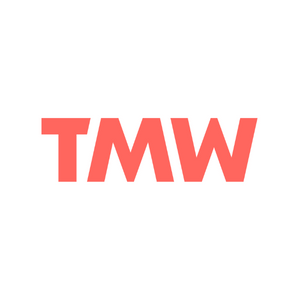
First TikTok, Now ChatGPT. Is Google’s reign over?

Since the launch of ChatGPT in November, it’s been hard to miss the constant stream of news, speculation and buzz around AI and what it means for marketers and SEOs. Just as the ‘TikTok is the new Google’ buzz started to die down, another shiny new thing is here to steal our jobs.
The use of generative AI has been floating around the digital marketing circles for some time, just in a slightly more inaccessible format. Relying on those with the dedication to experiment and share their cheat sheets, it’s been a handy shortcut to small wins in efficiency. From categorising bulks of information to generating image file names, bringing AI into the day-to-day of tasks can free up time for the more interesting and strategic parts of the job.
For many others, generative AI is seen as a huge opportunity to overhaul their digital operations. There’s no need to detail the various reasons why not to sack the entire content team in favour of a language model chatbot, but in case it’s a consideration, don’t. No matter how many ‘SEO Gurus’ on LinkedIn are claiming it works for their test sites. The real challenge this poses for brands and marketers goes beyond the immediate noise.
ChatGPT’s launch has brought around lots of interesting uses, but re-highlighted numerous issues with AI too. Discrimination, misinformation and copyright; it’s not a pretty path to navigate and a messy one to jump into without hesitation. There’s a reason why Meta and Google are keeping their own language models from being publicly available, these companies have a lot more reputational value at stake than the Elon Musk co-founded OpenAI.
It’s not the only trend to have sent a flurry of speculation among the industry in recent months. When a Google exec revealed, with slight vagueness, that 40% of gen z look to TikTok for lunch recommendations, the role of the traditional search engine was called into question. That exec isn’t wrong. Watching an authentic travel TikTok far surpasses the experience of scrolling through a templated list of TripAdvisor rated sights. Let’s not even mention recipes. Any SEO who doesn’t admit this probably hasn’t downloaded TikTok yet.
Dismissing these changes to the way people seek information online as ‘just another trend’ is a dangerous path to stick to. Whether it’s generative AI, TikTok, or whatever arrives next, there are constant signs that Google’s long, somewhat comfortable position as the gateway to the internet is starting to falter, even if it’s not fast enough to see it happening in real-time.
Google are already poised to respond to these threats. First declaring a Code Red following the launch of ChatGPT, to now calling on its founders to advise on AI strategy. Add that to the ongoing layoffs, a YouTube revenue slump, and an anti-competition lawsuit – there’s a lot going on for a company that has sat relatively comfortable on a lion share of online traffic for years.
But what can marketers do about it? Second-guessing algorithms and remaining ahead of the moves these tech companies make will always be a fundamental part of success in search and social visibility. The big challenge ahead is anticipating how the threats to Google will impact the way brands are discovered and engaged with online, and preparing for these changes is the only form of control to cling to.
So what does being prepared look like? Google’s goal is to ultimately protect its advertising revenue. To do that it must retain its position as the trusted gateway into the web, give user satisfaction across all types of searches and keep people coming back. Having the most sophisticated web search algorithm and a video platform dwindling in popularity isn’t enough anymore.
Shouting about what that might look like is all speculation, but innovating the search results further and expanding the mobile experience are the obvious starting points. User satisfaction needs to be improved to keep people who are beginning to search on other platforms. Could we see AI-generated featured snippets, a TikTok-dedicated carousel, a brand new social searching app? Who knows? But right now the exact answers aren’t needed for action.
Whether the threats are new platforms or emerging technologies, people will still be seeking information online. The key is being ready to meet your audiences on whichever platforms and formats they end up searching. Embracing a holistic view to visibility online is where the immediate effort needs to be placed. Teams must be linked together more closely, and attribution beyond just the website needs to be given more attention. Whether organic or paid, social or search, copywriters or designers, it’s time to stop treating these functions as siloes.
If there is more collaboration between these functions, it’s easier to react. If one platform changes, meeting the audience in another place is much easier. This is why modern agencies need to truly integrated. If your search team doesn’t have expertise in social, or your social agency doesn’t understand search, you will always be vulnerable. This isn’t limited to the threat to Google Search. It’s a funny time in the digital age; tech giants are showing signs of weakness and web3 is on the horizon. Whatever happens, driving business value has to be kept at the core of your digital strategy, and being nimble is the best way to achieve that.













